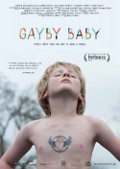
Directed by
Maya Newell
85 minutes
Rated PG
Reviewed by
Chris Thompson

Gayby Baby
Synopsis: A portrait of four families told through the eyes and voices of the children – Gus, Ebony, Graham and Matt – whose parents all happen to be gay. As they each wrestle with the challenges of oncoming adolescence, the outside world wrestles with the issue of marriage equality and whether or not kids with same-sex parents are at risk.Whilst the focus of this documentary is ostensibly the issue of marriage equality and families with same-sex parents, that topical issue ends up taking a bit of a back seat to issues more widely relating to how difficult parenting in general can be, especially as children approach puberty and the progressive emergence of their own autonomous personalities.
Apart from the obvious common thread, the four families we meet are very different in terms of the lives they live and the pressures they face. Gus is 10 and obsessed with WWE Wrestling. The level of violence associated with this sport and the traits of masculinity his two mums assume to be inherent in it are the cause of much conflict between he and his parents as they try to balance their ideas about what it means to be a man with the way Gus sees his own development. Ebony is 12 and hopes to get into Newtown Performing Arts High School where she can not only pursue her dream of becoming a singer, but where she feels she will be more easily accepted as a kid with two mums. Graham is 11 and has just moved to Fiji with his two dads. In response to this more conservative culture, the family agrees that one of his two dads will be referred to more as a family friend in order to avoid the stigma that the truth might attract. Graham’s real dilemma, though, is that after not speaking a word until he was adopted by his two dads at age 5, he is still struggling to learn to read. Matt is also 11 and whilst he began life with a mum and dad family, he now lives with two mums, the biological one of whom is devoutly religious despite the disapproval that her church holds for her relationship. Whilst his mother and her pastor seem to be able to reconcile this contradiction, Matt finds it perplexing and it leads to him doubting the existence of God. Matt’s family also happens to be one of the same-sex families who were invited to meet with then Prime Minister, Julia Gillard.
The kids are great natural ‘talent’, articulate, intelligent, and self-confident, and Newell’s fly-on-the-wall style takes us right into these four families allowing their respective situations to play out for us. But whilst these issues themselves may not make an overt argument for the acceptance of marriage equality they do, by their normality and by portraying the ways the parents and their children navigate and negotiate around the dilemmas they face, offer us a very clear example of how these four families are no different from any other family.
In the end, though, the film feels not unlike a composite of Australian Story episodes and whilst it might make a good companion piece to a doco like Genevieve Bailey’s I Am Eleven (2011), it feels like it would be more at home on the small screen than in the cinema.

Want more about this film?


Want something different?




